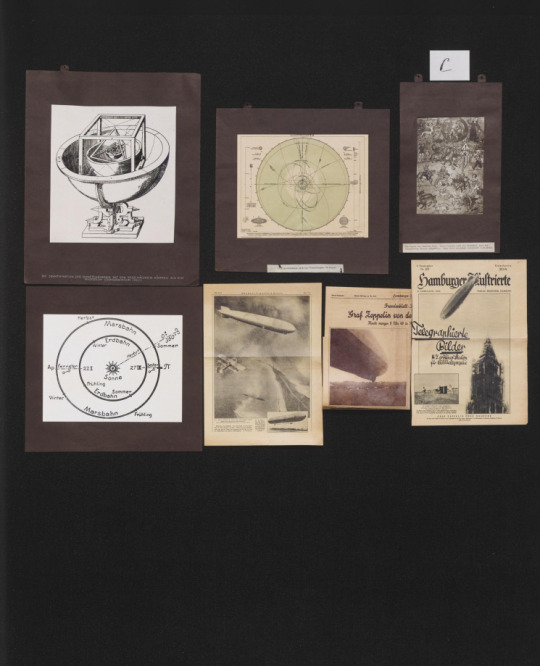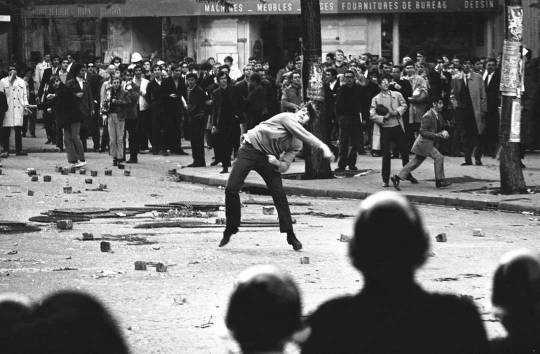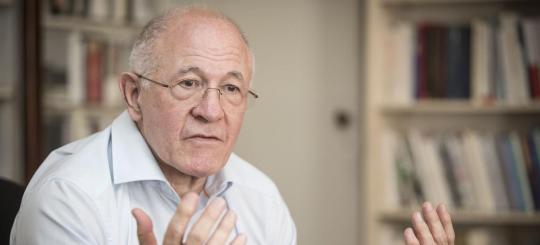#remi brague
Text
“Pope Francis himself should know better and most certainly does. In his graduate studies he was a student of the theology of Romano Guardini, which he clearly likes (as do I). Surely Guardini, who wrote extensively with an eye toward modern culture, is not guilty of merely repeating past formulas or of ignoring modern culture. And the Pope knows this. Neither were Bouyer, Balthasar, David L. Schindler, de Lubac, or even Garrigou LaGrange and Thomists such as Pieper, Gilson, Ulrich, and Maritain, for that matter.
Nor are a host of contemporary theologians, both young and old, guilty of such stale categories of thought. Creative and brilliant theologians and philosophers like Cyril O’Regan, David C. Schindler, John Betz, Matthew Levering, Emmanuel Falque, Jennifer Martin, Margaret Turek, Remi Brague, Keith Lemna, Jonathan Ciraulo, Jacob Wood, Bishop Erik Varden, and many others too numerous to list here, are in no way guilty of the theological deficits this document claims that theology up to this point has suffered from. I mention these thinkers simply because they are some of my favorites. But there are literally hundreds of equally gifted Catholic intellectuals out there doing precisely what the Pope is asking here—but in a manner I suspect the Pope does not favor because they do not serve his agenda.”
— Larry Chapp: “New papal document reads like a conclusion in search of an argument”
2 notes
·
View notes
Text

Warburgs Staatstafeln
1.
Tafel C aus dem Mnemosyne-Atlas ist Teil der drei Tafeln, die als Argument, also als bildgebende Gliederung für alle weiteren Tafeln, die Verfahren, die Technik oder die Methode dieses Atlas vorgeben.
Auf ihnen wird schon entfaltet, was ein Polobjekt sein soll, auch wenn Tafel 1 dann ins Detail einsteigt. Ein Polobjekt ist ein kleines, assoziiertes, mannigfaltiges oder multiples Objekt, mit dem hantiert wird, um Polarität zu operationalisieren, d.h. um mit Polarität umzugehen, und sei es, dass man einen Pol umgehen will.
Der Zeppelin wird auf Tafel C ein Beispiel, mit ihm entwickelt die Meteorologie Apparate und Verfahren, die einen Sturm am Nordpol umschiffen lassen, zumindest macht Warburg am Zeppelin das wahrnehmbar, da wird dieser Aspekt ihm wahrnehmbar, Warburg führt dazu wiederholt Protokolle in seinem Tagebuch. Die Entwicklung kann eine Übung sein, auch eine 'kleine Innovation', also etwas, was nur für einen, wenige oder einen Teil der Gesellschaft neu ist, nicht für alle.
Das Objekt ist dafür drehbar, wendig, kehrbar, kippbar, klappbar oder faltbar. Auch die Routinen dabei sind Drehungen, Wendungen, Kehren, Kippen, Klappen oder Falten.
2.
Auf Tafel C wird auch deutlich, dass Warburg unter kosmos nicht unbedingt Ordnung und Schmuck versteht, wie das klassisch, enzyklopädisch in den Wörterbüchern oder bei Remi Brague verstanden wird. Kosmos meint als nomen actionis unbedingt Sortierung und Musterung, aber nicht unbedingt Ordnung und Schmuck. Kosmos ist Sortierung, Muster. Die Ordnung ist darin nicht unbedingt schwächer, aber sie ist (re-)aktiv und, wenn nicht widerstreitend, widerständig und insistierend. Kosmos verstellt sich, durchgehend. zugespitzt: Kosmos heißt in Warburgs Deutsch Gestellschieberei. Das ist Kosmos, den es nicht ohne Kosmographie und nicht Kosmologie gibt, vermutlich sogar in dieser Reihenfolge, in der etwas Graphisches dem Logos vorausgeht. Die Linien, die in Blicken, Perspektiven, Bahnen und Konstellationen gezogen werden, die deutet Warburg zuerst graphisch, nur darüber könnte er sie auch phänomenologisch oder ästhetisch als urteilende Wahrnehmung deuten. Graphisch sind solche Linien (ausübbare) Verkörperungen und Teil des Distanzschaffens, das Warburg seit den sog. Bruchstücken vor dem Hintergrund von Bewegung deutet.
Warburg rekonstruiert (auch über Bachofens und Nietzsches Archäologie des römischen Rechts) kosmos als polos (gr.)/ polus. Dieser Kosmos ist polarer Zeit-Raum, in dem u.a. mit Wenden und Kehren Unbeständigkeit auf eine Weise mitläuft, in der wiederum erstens Ambiguität durchhält und damit zweitens die Frage nach der Stabilisierung sich ebensowenig erledigt wie die nach der Bewegung. Kosmos hat nichts, auf dem die Stabilisierung festen Boden unter den Füßen bekäme. Da ist kein archimedischer Punkt, kein zentraler Beobachter. In dem kosmos gibt es kehrende und meteorologische Objekte.
Ordnung wäre allenfalls als nomen actionis lesbar. Kosmos (ist) bewegt, und durch seine polare Spannung sind in der Bewegung Aktion und Reaktion, Konstanz und Passion, Aktivität und Passivität widerständig und insistierend verspannt. Sie kreuzen sich pendelnd, Woraus Warburg wohl etwas fröhliches machen will, mit Didi-Hubermann und Nietzsche gesprochen. Ob es fröhlich ist, ist eine andere Frage.
Der Begriff decorum und der Begriff Angemessenheit sind dem Begriff kosmos durch kleine Übersetzungsschritte assoziiert. Wenn kosmos nicht unbedingt Ordnung und Schmuck ist, aber unbedingt Sortierung und Musterung, dann ist decorum nicht nur das Passende, sondern auch das Passierende und das Passierte (auch im Sinne von faulen Tomaten, die einem Redner im Gesicht landen). Angemessenheit ist dann entweder die Stelle oder die Passage einer Messung.
1 note
·
View note
Text

Mayo 1968.
"De pronto me di cuenta de que estaba en el otro bando. Lo que vi era una horda desorganizada de hooligans de clase media. Cuando pregunté a mis amigos qué querían, qué estaban tratando de conseguir con aquello, todo lo que me respondían era un ridículo galimatías marxista. Estaba ofendido por eso, y pensé que debía haber una forma de defender la civilización occidental de esas cosas. Fue entonces cuando supe que quería preservar el sistema en lugar de cambiarlo”.
- Roger #Scruton (1944-2020), escritor y filósofo británico.
https://estebanlopezgonzalez.com/2022/09/02/remi-brague-el-fracaso-de-la-modernidad/
1 note
·
View note
Text
Europe's New Official History Erases Christianity While Promoting Islam
Europe’s New Official History Erases Christianity While Promoting Islam
Europe’s New Official History Erases Christianity, Promotes Islam GIULIO MEOTTI
“The patrons of the false Europe are bewitched by superstitions of inevitable progress. They believe that History is on their side, and this faith makes them haughty and disdainful, unable to acknowledge the defects in the post-national, post-cultural world they are constructing.” — The Paris Statement, signed by…
View On WordPress
#Arsene Heitz#Christianity in Europe#EU flag#Giulio Meotti#globalism#Islam in Europe#multiculturalism#Remi Brague#Robert Spaemann#Roger Scruton#The Paris Statement
0 notes
Text
Modernity’s Projects and the Loss of Human Dignity
Remi Brague shows how the modern person has made the human rather than nature the measure of all things.
from http://bit.ly/2D4l5Un
from https://eliaandponto1.tumblr.com/post/184177727407
0 notes
Text
Modernity’s Projects and the Loss of Human Dignity
Remi Brague shows how the modern person has made the human rather than nature the measure of all things.
from http://bit.ly/2D4l5Un
0 notes
Text
Modernity’s Projects and the Loss of Human Dignity
Remi Brague shows how the modern person has made the human rather than nature the measure of all things.
Modernity’s Projects and the Loss of Human Dignity syndicated from https://immigrationattorneyto.wordpress.com/
0 notes
Link
0 notes
Text
Cool books that begin by quoting GKC:
Curing Mad Truths - Remi Brague
Freedom From Reality - D.C. Schindler
#disclaimer: i haven’t finished any book on this list#i just felt like starting a list#(sorry)#books
5 notes
·
View notes
Link
Le spécialiste de l'histoire des religions* rappelle que, derrière toutes ses variétés, l'islam est aussi un système juridique qui se présente comme d'origine divine et où tout, en conséquence, n'est pas négociable.
LE FIGARO. - Au terme de tentatives laborieuses, il semble que l'idée d'une formation publique dispensée aux imams soit infructueuse: comment se fait-il que l'enseignement de l'islamologie, même en France, soit si difficile?
Rémi BRAGUE. - Distinguons enseignement de l'islamologie et enseignement de l'islam. Le premier relève de l'étude la plus objective possible de l'histoire et des sources écrites de l'islam. Le second est une sorte de catéchisme qui porte surtout sur ce que l'on peut, voire doit, faire et ne pas faire. L'ennui est que bien des prédicateurs et propagandistes se présentent comme «islamologues», alors qu'ils ne connaissent pas grand-chose des recherches actuelles sur les débuts de l'islam, la composition du Coran, etc. L'absence d'une distinction entre religion et politique n'est pas le fond du problème, qui est plus vaste. Il tient à la nature révélée des règles de comportement: c'est Dieu qui dicte ce qu'il faut faire pour Lui obéir au niveau de l'individu (règles alimentaires et vestimentaires), de la famille (statut de la femme), de l'économie («banque islamique»), voire, à la limite, de l'État. En face de la volonté de Dieu, aucune loi humaine ne fait le poids.
N'est-il pas sain, pourtant, d'instaurer un contrôle plus étroit de l'État sur la formation intellectuelle des responsables religieux musulmans?
Au départ, l'intention avouée était de limiter l'influence de certains agitateurs, parfois étrangers, voire ignorants de la langue et des réalités sociales de la France. Et d'éviter que des imams recommandent des pratiques qui vont à l'encontre des lois, et même des mœurs françaises. Il y a là un problème de police, comme quand on a expulsé cet imam qui expliquait l'art et la manière de battre sa femme à partir du Coran (IV, 34). Contrôler ce qui se passe dans la tête des candidats à l'imamat? Contourner le droit à dissimuler ses opinions en cas de contrainte (Coran, III, 28 et XVI, 106)? Je souhaite à l'État bien du plaisir…
L'islam peut-il se fondre dans le cadre légal français de 1905, auquel les communautés chrétienne et juive ont su s'adapter?
«Il y a des musulmans, ou ceux que nous appelons ainsi à cause de leurs origines, même s'ils ont avec l'islam un rapport nuancé, qui acceptent sincèrement la loi de la République»
Cette adaptation s'est bien passée pour les minorités juive et protestante. Elle n'a pas été sans heurts pour l'Église catholique, mais reste que la loi de 1905 a été taillée sur mesure pour elle. On peut aujourd'hui comprendre la «séparation» comme une façon parmi d'autres d'appliquer la distinction du religieux et du politique, qui est traditionnelle dans le christianisme. On ne faisait que découper selon un pointillé qui existait déjà. Ce qui a cessé, c'est la coopération entre l'Église et l'État. Mais les deux existaient depuis toujours comme des réalités indépendantes, voire hostiles. N'oublions pas que le christianisme a commencé dans la persécution par l'État romain. L'islam, lui, a commencé par la constitution d'un État, certes rudimentaire, mais avec une armée et une fiscalité, et dont le fondateur se disait envoyé de Dieu. Quant à l'islam en France, bien malin qui peut prédire ce qui se passera. Il y a des musulmans, ou ceux que nous appelons ainsi à cause de leurs origines, même s'ils ont avec l'islam un rapport nuancé, qui acceptent sincèrement la loi de la République. Nous avons du mal à comprendre les autres, qui la relativisent par rapport à telle ou telle forme de la charia. Ce qui fait obstacle, c'est le mot «religion» que nous employons sans réfléchir. Nous réduisons l'islam à ce que nous appelons «religion»: prière, pèlerinage, etc. Nous oublions que, derrière toutes ses variétés, l'islam est aussi un système juridique qui se présente comme d'origine divine et où tout, en conséquence, n'est pas négociable.
* Il est notamment l'auteur de «Sur la religion» (Flammarion, 2018).

0 notes
Quote
l'uomo non sa più troppo bene se si distingue radicalmente dall'animale. E ancora meno se vale davvero di più
Rémi Brague
0 notes
Text
Modernity’s Projects and the Loss of Human Dignity
Remi Brague shows how the modern person has made the human rather than nature the measure of all things.
from http://bit.ly/2D4l5Un
from https://eliaandponto1.tumblr.com/post/184084130807
0 notes
Text
Modernity’s Projects and the Loss of Human Dignity
Remi Brague shows how the modern person has made the human rather than nature the measure of all things.
from http://bit.ly/2D4l5Un
0 notes
Text
Modernity’s Projects and the Loss of Human Dignity
Remi Brague shows how the modern person has made the human rather than nature the measure of all things.
from http://bit.ly/2D4l5Un
from https://eliaandponto1.tumblr.com/post/184073734352
0 notes
Text
Modernity’s Projects and the Loss of Human Dignity
Remi Brague shows how the modern person has made the human rather than nature the measure of all things.
from http://bit.ly/2D4l5Un
0 notes
Text
Modernity’s Projects and the Loss of Human Dignity
Remi Brague shows how the modern person has made the human rather than nature the measure of all things.
from http://bit.ly/2D4l5Un
from https://eliaandponto1.tumblr.com/post/184033963787
0 notes